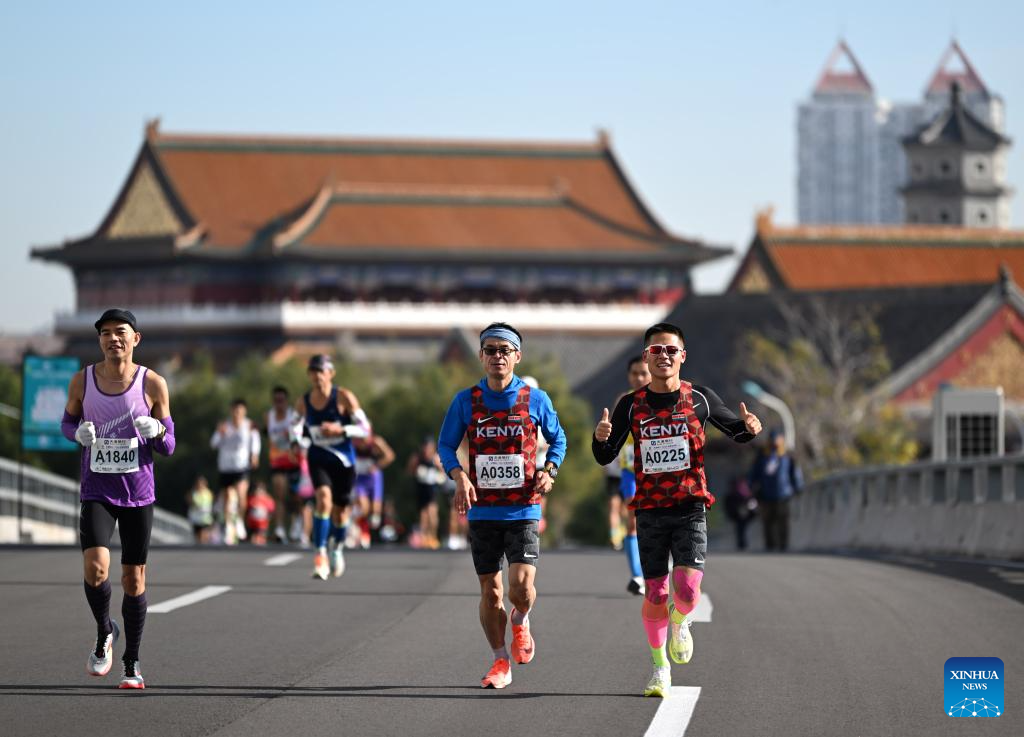
 0 Comment(s)
0 Comment(s) Print
Print E-mail Xinhua, October 21, 2024
E-mail Xinhua, October 21, 2024
It's the golden season for marathons in China. According to incomplete statistics, at least 20 marathon events were held simultaneously across the country on Sunday, including in Tianjin, Dalian, Xi'an, and Changsha.
Despite the abundance of events, many Chinese runners still struggle to secure spots, reflecting the high demand and growing popularity of marathons nationwide.

Runners compete during the 2024 Tianjin Marathon in north China's Tianjin, Oct. 20, 2024. (Xinhua/Li Ran)
The marathon boom in China has been ongoing for several years. A report from the Chinese Athletics Association identifies the period from 2016 to 2019 as a time of rapid growth, with 1,828 road races held in 2019.
After the COVID-19 pandemic, the momentum quickly returned, with 699 events held in 2023, averaging nearly two marathons a day. Experts predict that the number of marathon events will surpass the 2019 peak in the coming years.
This trend is driven by a balance of supply and demand. Analysts point out that when a country's per capita GDP exceeds $5,000, a sports consumption cycle begins, often marked by a rise in marathons. China reached this threshold in 2011, and as people's fitness needs and consumption habits have evolved, the demand for running events has increased, prompting a rise in marathon offerings.
The surge in marathons is also fueled by efforts to boost consumption and economic growth. Local governments are eager to host marathons due to the economic benefits they bring.
The influx of participants and tourists, combined with extensive media coverage, translates into economic gains for cities, particularly in the cultural and tourism sectors. Hosting a marathon also offers cities a chance to enhance their image and promote their unique charm.
For example, the 2024 Tianjin Marathon route features landmarks like the Ferris wheel "Tianjin Eye," the Jiefang Bridge, and Minyuan Square, offering runners a scenic and memorable race. Xue Hui, director of the Tianjin Sports Bureau, noted that marathons boost a city's visibility, reputation, and long-term vitality.
On the commercial side, when many sports events struggle to find sponsors, top marathons often attract numerous businesses eager to associate with the event. The road-running industry spans various sectors, from event management and sports equipment to tourism, media, and health services. A healthy marathon ecosystem benefits the entire industry chain.
Chinese cities are encouraged to develop unique marathon events tailored to their local culture and resources. Existing races should focus on improving professionalism, market appeal, and participant services to enhance the overall experience. Balancing economic and social benefits is crucial, ensuring that marathons meet fitness demands while contributing to broader economic and social development.
Go to Forum >>0 Comment(s)